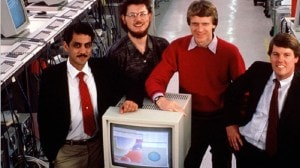A fracture is reportedly emerging in the high-profile partnership between OpenAI and Microsoft, two of the tech industry’s giants. Recent reports indicate that OpenAI executives have explored the possibility of accusing Microsoft of anticompetitive behaviour. The escalating tension signals fundamental disagreements over intellectual property rights and OpenAI’s operational autonomy.
The core of the dispute centers on Windsurf, a coding startup currently being acquired by OpenAI. Despite a standing agreement granting Microsoft access to all of OpenAI’s intellectual property, OpenAI is reportedly hesitant to extend this access to Windsurf’s technology, citing competitive overlaps in coding product development between the two companies.
What further strains the relationship are ongoing disagreements concerning OpenAI’s strategic independence. These include discussions over OpenAI’s ability to forge partnerships with other cloud service providers, as well as the terms governing Microsoft’s continued access to OpenAI’s advanced AI models once they achieve Artificial General Intelligence (AGI).
This internal decision of OpenAI to potentially lodge anticompetitive accusations, as rumoured, underscores a deepening conflict that could reshape the landscape of AI collaboration and competition
OpenAI wants to focus on hardware
In a previous report, OpenAI expressed interest in developing hardware products that promise to have the same kind of impact as the iPhone in 2007. The company collaborated with ex-Apple designer Jony Ive to work on a new gadget that houses the ChatGPT assistant. It does away with the screen and promises to be less intrusive than modern-day smartphones.







